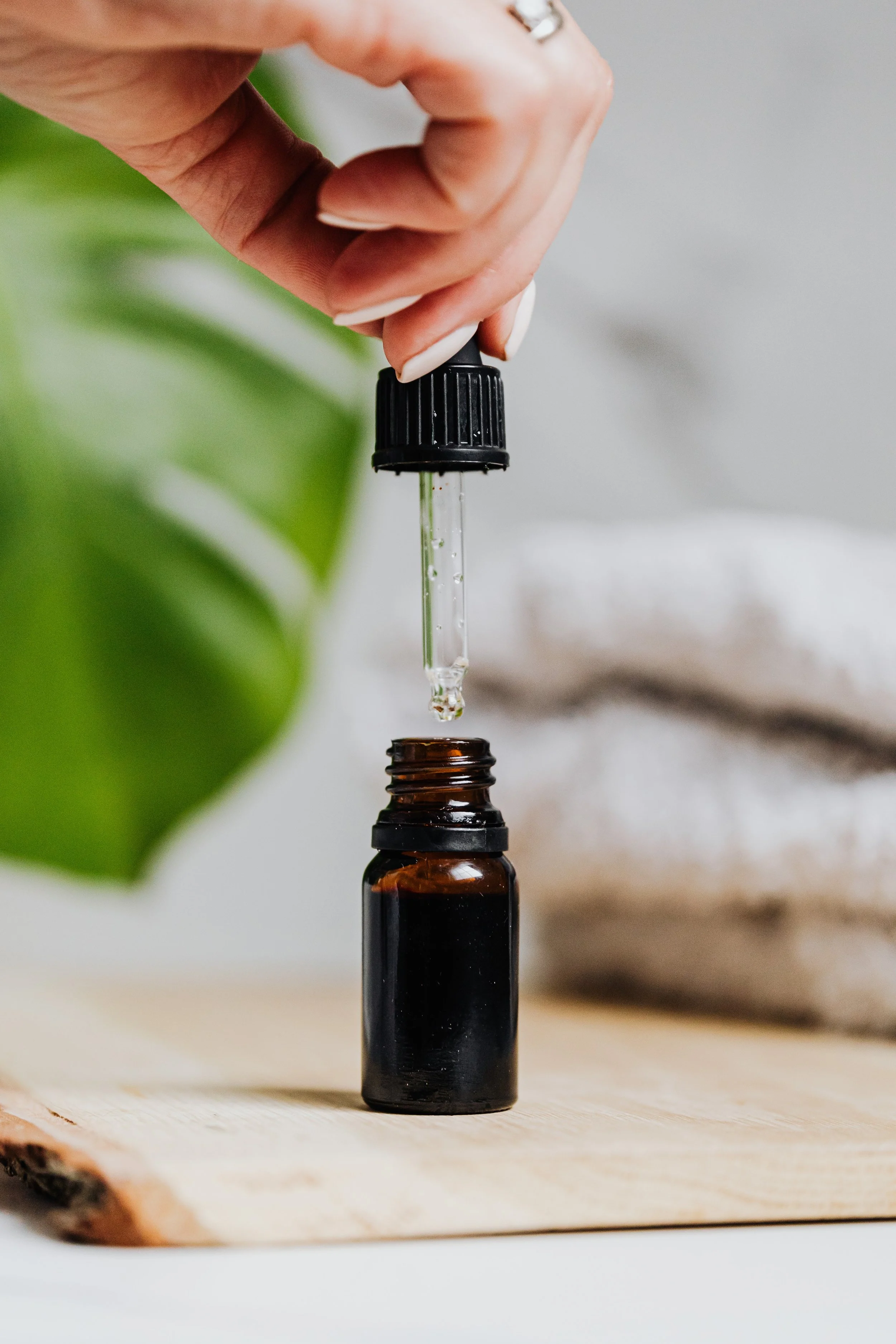Skin Hero - Serum
What is serum?
Face serums are lightweight formulations that contain active ingredients and can be applied to your skin directly. They are usually clear, gel-based, or liquid, and much less thick than moisturizers. Texture-wise, they are very similar to face oil but absorb much faster. Serums are designed to hydrate, protect, and nourish your skin and help fight several skin concerns such as:
Anti-aging
Eczema
Dark spots and hyperpigmentation
Acne and clogged pores
Dehydration
Skin inflammation (especially for men post-shave!)
Uneven skin tone, redness, and sensitivity
What serum does for your skin:
The serum delivers powerful ingredients directly into your skin. That's because it's made up of smaller molecules with high penetration power that sinks deep into the skin unlike heavy creams and delivers a high concentration of active ingredients. Due to the higher concentration, you may see visible results in a shorter period of time than with other skincare products.
Some of the primary functions of a face serum include:
Provides hydration, antioxidants, and a concentrated dose of nutrients to the skin
Soothes sensitive skin
Shields the skin from free radicals and damage
Lightweight gets easily absorbed into the skin
Improves the appearance of wrinkles, fine lines, etc.
How to judge the quality of a serum?
The best way to judge a serum is to choose a serum that contains ingredients suitable for your skin type.
If you have acne-prone skin, look for serums that contain Vitamin C to increase collagen production, retinol that refuses inflammation, zinc that calms irritated skin, salicylic acid that unclogs pores, etc.
In case you’ve dry skin, opt for serums containing Vitamin E that protects skin cells from oxidative damage, glycolic acid that gently exfoliates, or hyaluronic acid that retains moisture.
For dull skin, look for antioxidants like green tea extract that fight free radicals.
If you have a normal skin type, you can go for a glycolic acid-based serum that traps the moisture in your skin and keeps it rejuvenated.
How to choose your serum :
Skin Type - Be aware of your skin type and the ingredients that go into your face serum. You do not want ingredients that dry up your skin if your skin type is already dry.
Skin Issue - What are you trying to address with a face serum? Is it the fine lines around your mouth or the dark spots that are a result of sun exposure?
Always look for ingredients like the following:
Hydrators such as ceramides are like the cement of the skin and prevent water from escaping.
Antioxidants like vitamin C and grape seed extract help protect against sun damage and fight the signs of aging.
Hyaluronic acids can do wonders in treating dehydrated skin. They make sure that the skin doesn't lose any of its natural moisture and thus stays replenished.
Anti-inflammatories, including zinc, arnica, and goldenseal, soothe redness and prevent inflammatory cell damage.
Retinol-based serums are ideal for those with acne-prone skin. You can use such serums to address concerns such as fine lines, wrinkles, etc.
Plant-based ingredients like licorice help in skin lightening and help you get rid of those dark spots.
How to make sure your serum works for you :
Less is more: Don't apply too much serum as they contain potent ingredients. Applying excess quantities can irritate the skin. We usually advise 3-4 drops maximum.
Cleanse first: The powerful ingredients in face serums might stick to dirt and dead skin. Thus to let it get absorbed properly into the skin, make sure to cleanse your face thoroughly before applying a serum. Use tepid water to wash your face. Hot water can make your skin sweat, therefore, restricting absorption while cold water can close pores thus blocking the goodness of the serum.
Apply to damp skin: For dry skin, apply serum when it is still damp because the moisture makes it easy for penetration. For sensitive skin, allow your skin to dry before applying serum. Doing so will slow down the penetration of serum which is more likely to lead to irritation.
Avoid colors and fragrances: Serums are packed with potent ingredients. The extra fragrances and colors interfere with absorption of the product.
Don't apply serums after moisturizers: Moisturizers or face oils are thick skincare products that seal in other skincare products you apply before them. Serums on the other hand are lightweight and can't penetrate the barrier created by heavy moisturizers or face oils. So applying them before a moisturizer does no good to your skin.
Face serum can be applied during the day and at night. Apply a serum after cleansing your face and pat drying. If you are applying serum at night, make sure not to layer too much. Night cream or moisturizer forms a heavy layer. So it is important to apply either a serum or a moisturizer.
When to start using serum?
Serums contain powerful ingredients that can have an impact on the metabolism of cells. Face serums can turn out to be way too active for younger skin. The ideal age to start using face serums would be the late 20s and early 30s. This is the age at which the first signs of aging appear.
You can continue using face serums till the age of 50+. Including a face serum in your skin care regimen will not only enhance your skin but also protect it. After all, you want to protect the largest organ of your body - the skin.
The difference between serum and face oil.
The purpose of face oil is primarily to nourish, protect and moisturize the skin while a face serum targets specific skin concerns (such as wrinkles, fine lines, dullness, dryness, acne, irritation, and redness). Due to the latter serving a particular purpose, serums tend to be more expensive than oils.


